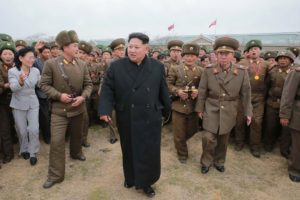
The New York Times:
In an effort to tighten sanctions that largely failed to throttle North Korea’s nuclear program, the United Nations Security Council on Wednesday imposed a cap on coal exports, the country’s chief source of hard currency.
The new penalties, adopted unanimously by the council, came as North Korea advances toward its goal of building a functional nuclear warhead. That presents a stark national security challenge to the incoming administration of President-elect Donald J. Trump, who called North Korea’s leader, Kim Jong-un, “a maniac” during the campaign, but has said nothing about how to contain Mr. Kim’s nuclear ambitions.
As with the original set of sanctions, which the Security Council adopted in March, the key to enforcing these new penalties remains in the hands of China, North Korea’s principal patron and coal customer.
The original sanctions — which the United States at the time hailed as “comprehensive” — had sought to limit coal exports, unless it was for what the measure called “livelihood” reasons. In spite of the sanctions, exports to China increased.
“The United States recognizes China in working closely with us,” Samantha Power, the American ambassador, said Wednesday. Negotiations lasted for three months, since Pyongyang’s fifth and latest nuclear test in September.
American officials conceded this week that there was some “vagueness” in the original measure. The new resolution aims to shave off $700 million from North Korea’s coal revenues. The resolution says North Korea can sell no more than 7.5 million metric tons of coal a year, or bring in no more than $400 million in sales, whichever comes first.
The Security Council measure also requires countries to tell the United Nations how much North Korean coal they are buying and expands the list of banned items for import by North Korea, including luxury goods like bone china worth more than $100 as well as a raft of equipment with dual-use purposes.
It also urges countries to allow North Korean diplomatic missions around the world to have only one bank account. That, the United States says, is intended to limit the country’s penchant for using its envoys and embassies to further its nuclear program.
How successful the new measures will be, of course, depends on the willingness of countries to abide by them.
The bigger uncertainty is what posture Mr. Trump will take toward North Korea and Mr. Kim — and, by extension, toward Beijing.
